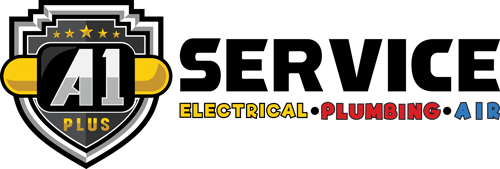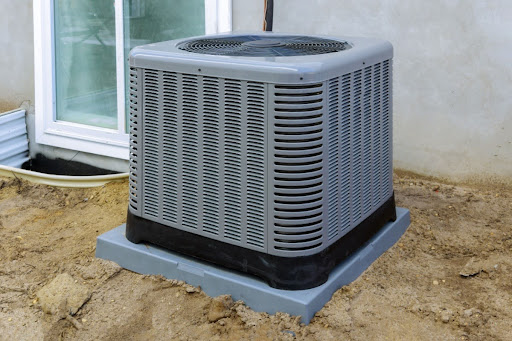Everyone pictures something different when they hear “power surge.” For some, it’s a tripped circuit breaker. For others, it’s a frightening flash and bang during a summer storm. For a homeowner with kids, it might mean a ruined game console or that dead smell of fried electronics.
But can a power surge damage an air conditioner? Yes, and we’ll explain why, how to recognize the signs, and what steps you can take to protect your system.
What Is a Power Surge and Why Does It Matter?
A power surge is a sudden spike in voltage traveling through your home’s electrical wiring. Most household devices and appliances are built to handle a steady flow of electricity at a specific voltage. When that voltage unexpectedly rises, even for a split second, it can overwhelm circuits and electronics inside your appliances.
Common causes include:
- Lightning strikes
- Grid switching or transformer malfunctions
- High-power equipment turning on or off
- Faulty home wiring
- Utility company errors
While some surges barely register, others can destroy anything plugged into your home’s power supply. Your AC system is no exception.
Can a Power Surge Damage an Air Conditioner?
Yes, a power surge can damage an air conditioner in several serious ways. Air conditioning systems, especially modern ones, are packed with electronic components. These parts rely on stable voltage levels to operate correctly. When a voltage spike hits, it can disrupt or permanently damage key parts of your AC unit.
This isn’t something that only happens during massive storms, either. Even a minor surge from switching equipment or a voltage spike during a brownout can silently hurt your HVAC system. The damage might not be obvious at first, but it adds up over time until the system fails.
For those asking, “How bad can it be?” The answer is: bad enough to cause a full system shutdown, major repairs, or even the need for a full replacement.
How a Surge in Power Can Affect Your Air Conditioner
A power surge can damage an air conditioner in more ways than one. Even minor surges can leave behind problems that grow with time.
1. Burned-Out Control Boards
The control board is essentially the brain of your AC. It manages temperatures, fan speed, and other automated functions. A power surge can fry the board’s delicate electronic circuits in seconds, leading to system failure.
2. Damaged Compressor
The compressor is the heart of your air conditioner, and it’s one of the most expensive parts to replace. A surge can overheat the internal windings or destroy the contactor, leaving the unit unable to pump refrigerant.
3. Ruined Capacitors and Relays
Capacitors store and release energy to help motors start and run efficiently. Relays act like electrical switches. Both are sensitive to voltage fluctuations and can be knocked out by a strong enough surge.
4. Wiring and Connection Damage
A power surge can cause wires to burn or melt, creating electrical hazards. This can lead to a short circuit or, worse, an electrical fire.
5. Subtle Long-Term Damage
Not all damage is instant. Some surges weaken components gradually. Your AC might keep running, but it’s doing so less efficiently until one day, it just stops.
How to Protect Your AC From Power Surges
Knowing the risks is one thing. Doing something about them is the next step. Here’s how to protect your AC from power surges and keep your system running smoothly.
Install a Whole House Surge Protector
The best defense starts at the source. A whole-house surge protector is installed near your main electrical panel and acts like a barrier between the power coming in from the grid and your home’s wiring. It redirects sudden increases in voltage to the ground before they can reach your appliances.
A1 Plus Electrical, Plumbing and Air can provide you with a whole-house surge protector installation in Houston, TX. It’s one of the most effective ways to protect your AC and home electronics.
Use Additional Point-of-Use Surge Protectors
Adding surge suppressors at outlets connected to sensitive equipment like your AC control system or smart thermostat provides another layer of protection. These plug-in devices help absorb minor fluctuations that may slip past the main panel protector.
Schedule Regular AC Maintenance
Routine maintenance helps catch issues early, including signs of surge damage. During an AC tune-up in Houston, the technicians at A1 Plus Electrical, Plumbing and Air check wiring, inspect components, and verify that electrical connections are safe and secure.
Keep an Eye on the Weather
During intense lightning storms, consider shutting off power to your AC if it’s safe to do so. Surges caused by lightning strikes are powerful enough to jump through basic protection and damage anything connected to the grid.
What to Do After a Power Surge
If you suspect your AC has been affected by a power surge, don’t panic, but don’t ignore it either. Electrical damage might not be visible, but it can still be serious.
Here’s what to do:
- Turn off the AC unit at the thermostat and the breaker.
- Look for signs of damage, such as a burnt smell, discoloration, or strange noises.
- Avoid flipping breakers repeatedly. If it trips again, there’s a reason.
- Call a licensed technician to inspect the system before restarting anything.
Even if the unit turns back on, hidden damage to the compressor or control board can lead to much larger problems down the road.
Why A Power Surge Can Damage an Air Conditioner So Quickly
Air conditioners are designed to operate with very specific voltages. Any sudden spike, even just for a fraction of a second, can cause the delicate internal components to fail. And it doesn’t take a massive storm for this to happen. Minor fluctuations throughout the day can slowly degrade the system. That’s why understanding how to protect your AC from power surges is so important.
Don’t Let a Power Surge Wipe Out Your AC
At A1 Plus Electrical, Plumbing and Air, we’ve been serving homeowners throughout the greater Houston area for years. We’ve seen the kind of damage that a power surge can cause, and we’ve helped countless families get their homes back up and running again.
We’re proud to be locally owned and operated, and we don’t take shortcuts. Our electricians are licensed, insured, and experienced in both surge protection and HVAC electrical systems. Whether you need a quick inspection or a full surge protection device installation, we have the tools and the training to get the job done right. Schedule your service today and give your family the comfort and safety they deserve!

